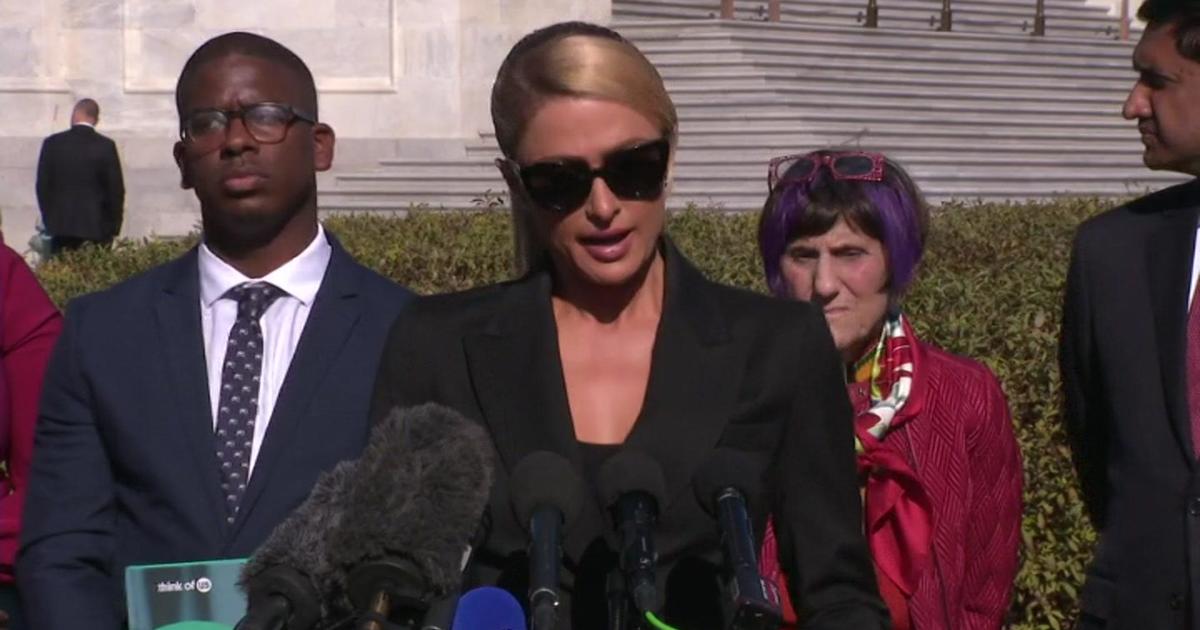Colorblindness Breakthrough Brings New Shades To Life
SACRAMENTO (CBS13) — They look like typical glasses, but new technology is helping people lift the shade on colorblindness.
Enchroma, a Berkeley-based company, has created classes helping those with colorblindness see the world the way the rest of the world does.
What was once a pale reflection is now a breathtaking snapshot of Kevin St. Clair's wedding day.
"Everything looks so much cooler than I thought it'd looked," he said.
Kevin has a type of colorblindness where the red and green wavelengths or "cones" in his eyes overlap. It's a genetic defect that leaves him seeing something with bright colors appear more muted.
"I just tend to not use references to colors on things," he said. "I'll use different attributes, different things, so you know, I never tell someone get me the green marker. I would point to an item—it's the second one over, the third one over."
Enchroma has developed sophisticated technology for glasses that filter out certain wavelengths so the brain can make distinctions between colors—in other words, bringing color to the colorblind.
"Think of this neuromechanism as being a padlock," said chief scientist Donald McPherson. "And the perception of color as a doorway that you open up. So what's missing is a key. If the key is correct, it will open up that neuromechanism and perceive the color."
He's quick to point out that the lenses aren't a cure, but a temporary fix to perceive colors better.
"There are people who say things like, 'Wow!' They're looking at a brick wall and they're saying, 'Wow! Every brick is a different color,'" he said.
For Kevin, the glasses have opened up a whole new world where trees are lush and vibrant, flowers come in a rainbow of shades, and strolls down memory lane bring a much deeper meaning.
"It really adds to the scale of the event that it was. Everything was a lot more vibrant, a lot more colorful, a lot more energetic than I had previously interpreted it," he said.
He's one of more than 3.5 million in the United States who are colorblind—or 8 percent of men and 0.5 percent of women.
"We're the first company to create eyewear that can correct color blindness," said CEO Tony Dykes, "which has been something that scientists have been looking to do for hundreds of years now."
With sales skyrocketing over the past year, Enchroma says emotional moments on social media where people share what they've seen for the first time are pushing them toward the next generation of products.
"We're now working on successfully developing a contact lens version of this," he said.
Kevin's wife Clarinda says it's been a lesson in rediscovery for her, too. She says everyday mundane things push the spectrum of cool.
"It's like seeing a kid see things for the first time," she said. "But he can vocalize it. It's interesting to watch and see him ask what is that? What kind of shade is that? Is that a pink? Is that a red?"
While the couple calls the glasses game changers, Kevin says there's one thing he's anxious to see soon.
"I'm really excited for fall to see all of the leaves turn and actually be able to see the full spectrum on that too," he said.
The glasses were initially created to protect doctors' eyes during laser surgery. They run between $300 and $400.



